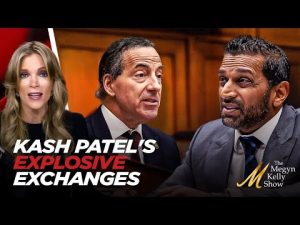In a recent political incident, the complexities of radicalization have taken center stage, raising critical questions about accountability and the rhetoric used in today’s discourse. A shooter, Tyler Robinson, is accused of committing a heinous crime and left behind a chilling message engraved on a bullet. The inscription read, “Hey, fascist! Catch,” which eerily reflects a narrative that has been propagated by the left for over a decade. This situation cannot be viewed in isolation, especially when one considers the broader implications of ongoing political hostility.
For years, liberals have vilified prominent figures, often labeling them as fascists and Nazis. This relentless labeling fosters an environment where extreme behaviors can flourish. The shooter, motivated by this aggressive rhetoric, represents the potential dangers when political discourse devolves into outright hostility and dehumanization. It raises an urgent question: how far are we willing to go in our attempts to silence opposing views?
Critics will undoubtedly rush to disassociate this individual from the larger political movement. They might argue that Tyler Robinson does not represent any single political ideology. While this may be true, it is vital to acknowledge how easily rhetoric can sway individuals to commit acts of violence. When public figures and journalists engage in name-calling and demonization, they are not just shaping opinions; they may contribute to real-world consequences that often lead to tragedy.
The prosecutor in the case is outlining the serious nature of Robinson’s crimes. In doing so, the charges highlight not only the gravity of the situation but also the slippery slope of unchecked, inflammatory speech. Instead of fostering healthy debate or respecting differences of opinion, this environment encourages division and, tragically, violence. When words are weaponized, the ensuing fallout can be disastrous.
As responsible citizens, it is critical to advocate for a return to civil discourse grounded in mutual respect and understanding. While passionate beliefs deserve expression, they should never incite violence or hatred toward others. Our society must be vigilant against the allure of extremist ideologies that lead individuals like Robinson down a dark path. It is time to hold accountable those who perpetuate divisive narratives. The consequences of their words ripple through the community, impacting lives in ways they often fail to comprehend. Emphasizing personal responsibility, law, and order must remain at the forefront as we navigate these contentious times.







